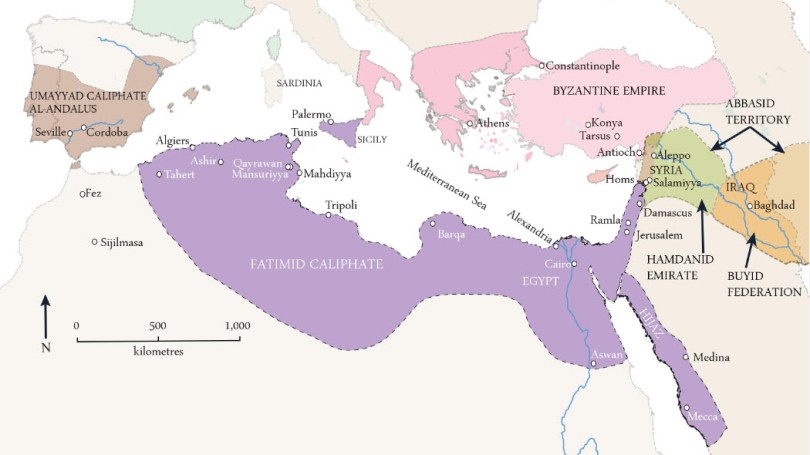The fifteenth Ismaili Imam and the fifth Fatimid Caliph Al-Aziz succeeded his father to the Imamat in December 975 (Daftay, The Ismailis p 176). Born in 955, Abu Mansur Nizar, succeeded to the Imamat with the title of al-Aziz bi’llah (‘friend of allah’). He was the first member of the Fatimid dynasty to begin his rule in Egypt. His father, Imam al-Mu’izz (r. 953-975) had founded the city of Cairo to where he transferred the Fatimid Capital in 969 from Mansuriyya in North Africa, a city founded by his father Imam al-Mansur. Originally named Mansuriyya, after its prototype, the new Fatimid city was later re-named “al-Qahira al-Mu’izziyya” (the Victorious one of al-Mu’izz), al-Qahira for short, today known as Cairo.
The Fatimid empire attained its greatest territorial rule during the reign of Imam al-Aziz, extending from the present-day Morocco to Sicily, Palestine and Syria (IIS).

Imam Al-Aziz was an excellent administrator employing capable people without regard for their religious beliefs. “Under al-Aziz, Ibn Killis, a convert from Judaism, became the first Fatimid vizier” (Daftary, Dictionary of the Ismailis p 25-26). Ibn Killis established a regular teaching centre for law next to the Al-Azhar Mosque, founded by Imam al-Mu’izz. This was not a university as it consisted of public lectures on law according to the Ismaili interpretation and with the jurists receiving salaries from the private funds of the caliph as there did not exist an endowment at the time. However Imam al-Azis’s son and successor changed the model of the teaching centre, creating it into a university that is still famous today.
Halm notes that Imam al-Aziz “was among the greatest rulers of Islamic history”. During his reign, the “different religious groups among the Egyptian and Syrian populations – Ismailis, Twelver Shi’is, Sunnis, Christians and Jews – lived together peacefully” (The Fatimids and their Traditions of Learning p 34).
Sources:
Farhad Daftary, The Isma’ilis Their history and doctrines, Cambridge University Press, 1990
Farhad Daftary, Historical Dictionary of the Ismailis, The Scarecrow Press, 2012
Heinz Halm, The Fatimids and their Traditions of Learning, I.B. Tauris in association with The Institute of Ismaili Studies, London,1997
